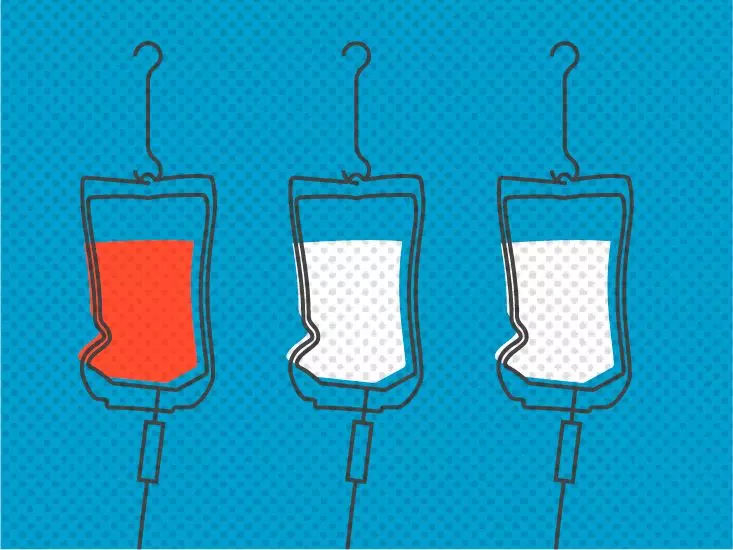Abecma (idecabtagene vicleucel) emerges as a transformative therapy in the battle against multiple myeloma, particularly for adults grappling with refractory or relapsed forms of this challenging condition. While the FDA-approved treatment offers hope, understanding the complexities of its interactions with other substances is vital for patient safety and treatment efficacy. This exploration delves into the nuances of Abecma’s interactions, emphasizing the importance of patient awareness and proactive management.
Understanding Abecma: The Science Behind the Treatment
Abecma operates as a groundbreaking medication that utilizes CAR T-cell therapy to empower the immune system in fighting myeloma. Unlike conventional treatments that often bombard the body with chemicals, Abecma is designed to harness and modify the body’s own T-cells to target and eliminate cancer cells. After exhausting multiple therapies that have proven ineffective, patients may find this innovative approach as their next viable option.
Yet, with any potent therapy comes the necessity for vigilance regarding potential interactions. Although studies reported that Abecma does not have significant interactions with other medications, the absence of documented interactions does not guarantee safety across the board. Patients are encouraged to engage deeply with their healthcare providers about their entire regimen, including over-the-counter medications, supplements, and lifestyle choices, which could unwittingly alter the therapy’s effectiveness.
The Importance of Comprehensive Disclosure
As patients embark on their journey with Abecma, the conversation with healthcare providers must extend well beyond discussing just the cancer treatment itself. Sharing comprehensive health histories includes detailing all medications, no matter how trivial they may seem. This disclosure helps healthcare professionals uncover any potential risks that might not yet be documented in literature but could emerge clinically.
Patients should actively communicate if they consume any supplements, herbal products, or vitamins, as the interactions between these common substances and cancer therapies can be unpredictable. Despite the current absence of specific reports linking these products to Abecma, the medical field thrives on evolving knowledge, and caution should dictate the approach to any additional substances being considered during treatment.
Caution with Alcohol and Cannabis During Treatment
Alcohol presents an intriguing quandary for those receiving Abecma. Although no specific interactions are documented, the potential exacerbation of side effects like nausea and dizziness ought not to be overlooked. The psychological and physiological toll of myeloma, coupled with the side effects associated with Abecma, demands that patients confer with their doctors regarding alcohol consumption.
Similarly, the role of cannabis or CBD is becoming increasingly prevalent in medical discussions. While current literature does not cite direct interactions between cannabis products and Abecma, the lifestyle changes and potential effects on adherence to treatment represent another layer of complexity. Consulting healthcare providers about the decision to incorporate cannabis into a treatment plan is essential, allowing for personalized guidance based on individual health profiles.
Vaccine and Lab Test Considerations
A unique and significant aspect of Abecma’s interaction profile involves its impact on vaccines. Given that Abecma modifies the immune response, certain live vaccines could pose risks. The patient’s compromised immune system may hinder its ability to respond to live vaccines effectively, causing potential illness. To protect themselves, patients should discuss vaccination schedules with their healthcare teams before commencing treatment.
Beyond vaccines, Abecma also affects the reliability of certain lab tests, particularly those used to detect HIV. Patients may receive a false-positive result due to the drug’s interference. Recognizing this possibility underscores the necessity for clear communication with healthcare providers, ensuring that patients can undergo accurate testing without fear of misleading results.
Taking Ownership of Treatment with Abecma
Patients need to be proactive in their treatment journeys. Creating a thorough medication list and discussing it thoroughly with healthcare providers can greatly enhance safety and efficacy. Reading through the drug information accompanying Abecma will equip patients with the knowledge necessary to navigate their treatment effectively.
Success in cancer treatment is a partnership: between the patient and their medical team. Awareness, open communication, and education are paramount for harnessing the full potential of Abecma while minimizing associated risks. While patients may feel overwhelmed at times, empowering themselves with information can lead to better outcomes in their fight against multiple myeloma.

